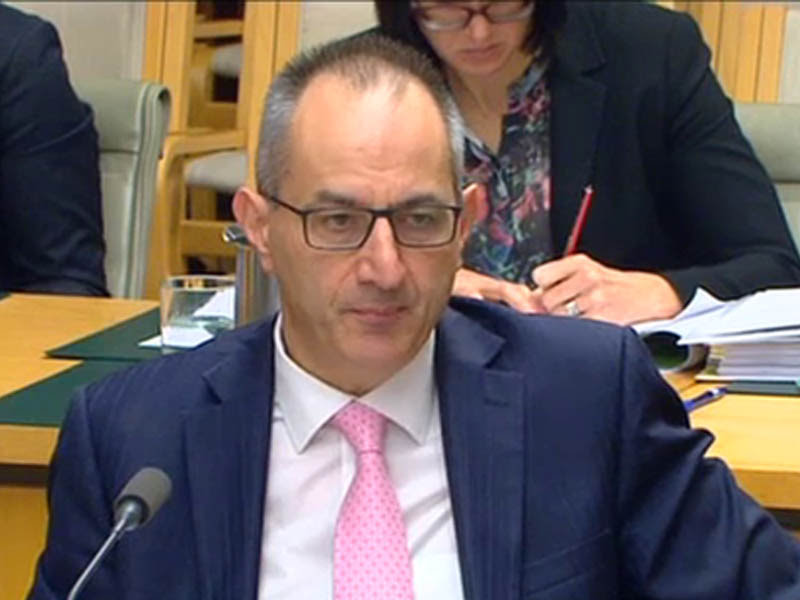The first iteration of the federal government’s permissions capability will launch this week, serving to digitise the Covid-19 declarations of incoming passengers and coinciding with the reopening of Australia’s borders.
Home Affairs Secretary Mike Pezzullo told Senate Estimates on Monday morning that the Digital Passenger Declaration will come into effect on Tuesday, after original plans to launch it by the end of last year.
Mr Pezzullo also provided more details on a recent tender issued by Home Affairs for identity-matching services, and hailed the recently introduced critical infrastructure reforms.

The federal government last year selected tech consulting giant Accenture to deliver a permissions capability, which will initially handle incoming passenger cards and Covid-19 vaccination declarations.
The permissions capability will then be rolled out across a number of government services.
Accenture has now been awarded contracts worth $60 million for this work, which involved the purchase of off-the-shelf technology and ongoing work on this, while consultancies have landed about $13 million.
Mr Pezzullo on Monday revealed that the permissions capability will be launched this week, replacing the Australian Travel Declaration, which has been in place since the onset of the pandemic.
In “subsequent releases” the paper-based incoming passenger card will also be completed digitally through Accenture’s platform.
“The Digital Passenger Declaration will be a key tool at facilitating our reopening at ever-increasing scales,” Mr Pezzullo told the Estimates hearing.
The government had planned to launch the permissions capability by the end of last year, and started trialing the technology in December.
While Australia’s international border will be reopening fully later this month, while its two largest states – New South Wales and Victoria – have been open to international travellers for several months.
The transition to the Digital Passenger Declaration will be complete by 18 February.
It’s not the first time the government has attempted to digitise the incoming passenger card and visa processing, with a previous project scrapped after $90 million was already spent.
Home Affairs officials told the Estimates hearing that the full Digital Passenger Declaration functionality is not expected until the middle of the year.
Community and Public Sector Union assistant national secretary Michael Tull criticised the delay and said the work should have been completed in-house by the APS rather than by a private contractor.
“Even these initial stages of the project are a year behind schedule, and given the Department’s track record of spending hundreds of millions of dollars on IT projects that fail the delivery of this functionality in June can’t be guaranteed,” Mr Tull told InnovationAus.
“The only way to be sure that the Department would get the product it needed, and would get it on time and on budget would have been to build it in-house. Home Affairs ICT staff know that they have the skills and experience to deliver this project for the Department.”
The wider permissions capability is a piece of “critical digital infrastructure” that should not have been outsourced, Mr Tull said.
“Given the delays in this project it is clear that COVID-19 has further exposed the fatal flaws in the Morrison Government’s use of consultants to do the work the public service can better and cheaper. If Scott Morrison was serious about national security, he would ditch this plan to outsource key border capability and instead look to build public service capacity and future proof this system,” he said.
At the Estimates hearing, Home Affairs also provided more detail on a recent tender issued by the department for identity-matching services.
Earlier this month the department went to the market for a private provider to work on its identity-matching services and host the National Drivers Licence Facial Recognition Service, despite legislation facilitating its use still not being passed.
When questioned on why this tender had been issued before the legislation has been approved by Parliament, Home Affairs deputy policy secretary Marc Ablong said the work relating to this tender is not contingent on the legislation passing.
“The department has for a number of years run the document verification service and is in the process of working with states and territories about the face-matching service. This is not about moving forward on the identity-matching services beyond what we currently have approval for,” Mr Ablong said.
Mr Ablong confirmed the government is not yet able to use its national biometrics database due to the necessary legislation not having passed yet, but that a number of state governments have already provided drivers licence photos to it.
“We’re not allowed to use those yet until such circumstances the bill is through. Tasmania, Victoria and South Australia have uploaded their data…other jurisdictions are expected to flow,” he said.
At the hearing, Mr Pezzullo also hailed new critical infrastructure reforms, recently introduced to Parliament, as being “world-leading”.
The reforms, the last of a series of new powers the government has rolled out, include the ability for the government to order a company to install software to share data with Australia’s spy agency.
“It’s probably one of the most world-leading efforts to balance this…it’s putting government capabilities onto networks but not allowing the private operators to defray the risk back onto the Commonwealth,” Mr Pezzullo said.
“The ASD has the lawful capacity to share information in a more timely fashion, to have reporting should systems be designated as nationally significant, to have more timely legal obligation reports provided to them. But we’re very conscious of not over-boarding businesses with new costs.”
Do you know more? Contact James Riley via Email.

